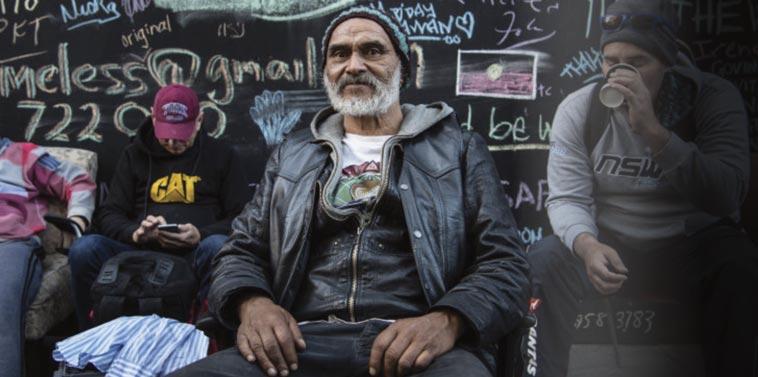A still from ‘Holding The Man’ (2015), based on the lives of two gay men living through the early days of HIV/AIDS in Australia
IN THE EYE OF THE STORM
2022 marks the 40th anniversary of the first Australian AIDS diagnosis. A new book explores the crucial role volunteers played at a time of disaster. David recalls the uncertainty in his circle of gay friends when “AIDS hit Sydney” and how the individual responses to this uncertainty differed “before we actually knew that it was the HIV virus and the discussion and negotiation around what constitutes safe sex”. As he looks back on those early, uncertain days of the epidemic, David suspects that “there was probably a lot of fear”. Gay men had good reason to be scared. Don Baxter — a leading political figure in Sydney gay life — recently recalled the fear and anxiety of those days: “There was the prospect that the whole community would be decimated.” To prepare for the worst, the Sydney-based NSW Gay Counselling Service established an AIDS Support
Group in mid-1983 with a brief to provide emotional support for the ill. In 1984, following discussions with the Gay Counselling Service and the Metropolitan Community Church, nurse Peter McCarthy set about establishing a network of volunteers to offer home care for those with AIDS. The group called itself the Community Support Network (CSN) and its first training course ran over ten weeks in late 1984. Spruiking the network, McCarthy declared: “We need people who can be good listeners and non-judgemental, as well as face up to the reality of death and dying.” As writer Nick Cook outlined in his history of NSW AIDS organisations — Fighting for Our Lives — the level of home care varied depending on need. It could range from “an occasional popin to cook dinner . . . through to 24-hour care for somebody who was bed-
32 | Inner Sydney Voice | Summer 2021-2022 | innersydneyvoice.org.au
ridden and wanted to die at home”. David joined CSN after attending the community forum on AIDS and hearing the call for volunteers: “I was probably one of the early volunteers.” Held in inner-city Sydney, the CSN course was an intense experience, both in the accelerated training and the emotions it evoked. “Obviously, you go through a whole pile of practical stuff on how to deal with people who are dying. You go through a lot of emotional stuff about doing it. But that sort of stuff happens on the job.” In many ways, volunteering for CSN did become a job for David. As Dennis Altman observed of individuals who became involved in the HIV/AIDS crisis during the 1980s, a short-term intensive commitment often became an ongoing one. Self-employed, David had flexible hours, his own transport and,



















